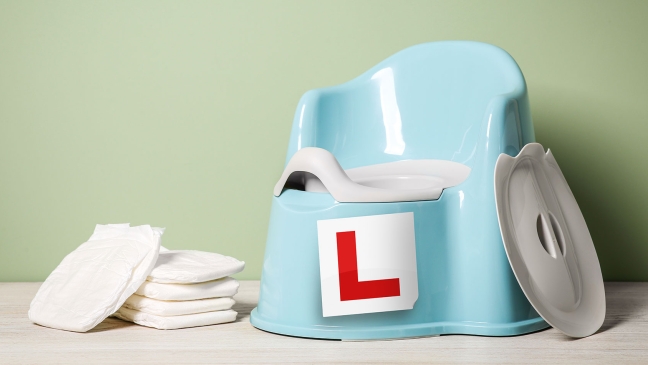This article was originally published on 15 September 2024
Teaching in the early years can be hard, especially at the start of the new school year.
And it’s getting harder. Kindred Squared recently surveyed teachers and teaching assistants in Reception about the 2023 intake. Their feedback: around a third of children are not ready for school, and the problem is getting worse. One of the biggest challenges is the number of children who aren’t toilet trained.
In part, these challenges stem from issues that are outside of schools’ control. For example, children starting Reception this September spent many of their crucial early months in lockdown. Many families were unable to access health visitors and other NHS services.
So what can schools do?
Social change
The Institute for Health Visiting states that “most children are ready to master potty independence and lead in many parts of the process from around 18 months”.
However, ERIC, The Children’s Bowel and Bladder Charity, notes that over the last 100 years “the average age that our children are being toilet trained has moved from 12-18 months, to an average of around 3 or even 4 years today”.
There are multiple reasons for this social change, but perhaps one of the main drivers is the idea of waiting until children are ready, especially with respect to children with special educational needs and disabilities (SEND).
But the Institute for Health Visiting advises that becoming toilet-trained is “about learning a set of skills that can be taught”.
For children with additional needs, it advises parents and carers not to delay “working on the skills needed for toilet training - in fact, starting early has shown to be particularly successful”.
A clear programme, setting out how staff and parents will work together to teach those skills, is important. Schools already do this well in other areas, like phonics. So why not toilet training, too?
Child development is variable
In taking this approach, we need to remember that Reception classes include children who turn 5 in September alongside others who will not be 5 until the following August. Those 11 months are a big difference for little children. And child development is variable, anyway.
The EYFS non-statutory guidance Development Matters states that “most, but not all, children are reliably dry during the day by the age of 4”. So we should expect some children between 4 and 5 to need help with toileting.
We need to remember that at the heart of this situation is a young child, trying to manage the challenges of starting school. Feeling cross with the child, or blaming their parents, is unhelpful, although understandable.
Anyone who has spent time in the hospital knows how awful it feels to be handled in an abrupt or uncaring way by an adult carrying out an intimate procedure. However frustrating the situation is, the child’s emotions and dignity must be respected.
It is also important to take time to listen to and understand parents, as well as share difficult messages. Worryingly, Kindred Squared reports that “parents in focus groups used emotive language to express the feeling of being talked ‘at’”.
Research from the Royal Foundation tells us that half of all parents suffer from loneliness. Many do not feel confident enough to access or accept help, fearing judgement or stigma.
‘Consistency, patience and clarity’
Communicating expectations and procedures in a clear and sensitive way is a must. Explain how the school will teach the child the skills they need, and agree a plan of action with the parent for support at home. Consistency, patience and clarity are key.
Many respondents to the Kindred Squared survey noted that support for toileting takes time away from teaching and playing in Reception. One teacher commented that “it takes two adults as part of our safeguarding policy to sort that child out [after a toileting accident]. It could take 20 or 25 minutes. By that time, you’ve lost it. The thread of the day’s gone.”
However, the NSPCC recommends that “where possible, care should be provided by one person to protect the child’s dignity”. While schools must make their own judgements on safeguarding, this advice is worth reflecting on.
More than 90 per cent of children attend early years provision before they start Reception, so toilet training is becoming the joint responsibility of settings and families. A renewed focus on early help for parents through programmes like family hubs and children’s centres, and more health visitors, will support both parents and settings.
As well as offering more support, we need to shift attitudes around when toilet training should start so that more children have the self-care skills they need to be confident and thrive when they start school.
Julian Grenier CBE is the co-author of Putting the EYFS Curriculum into Practice





